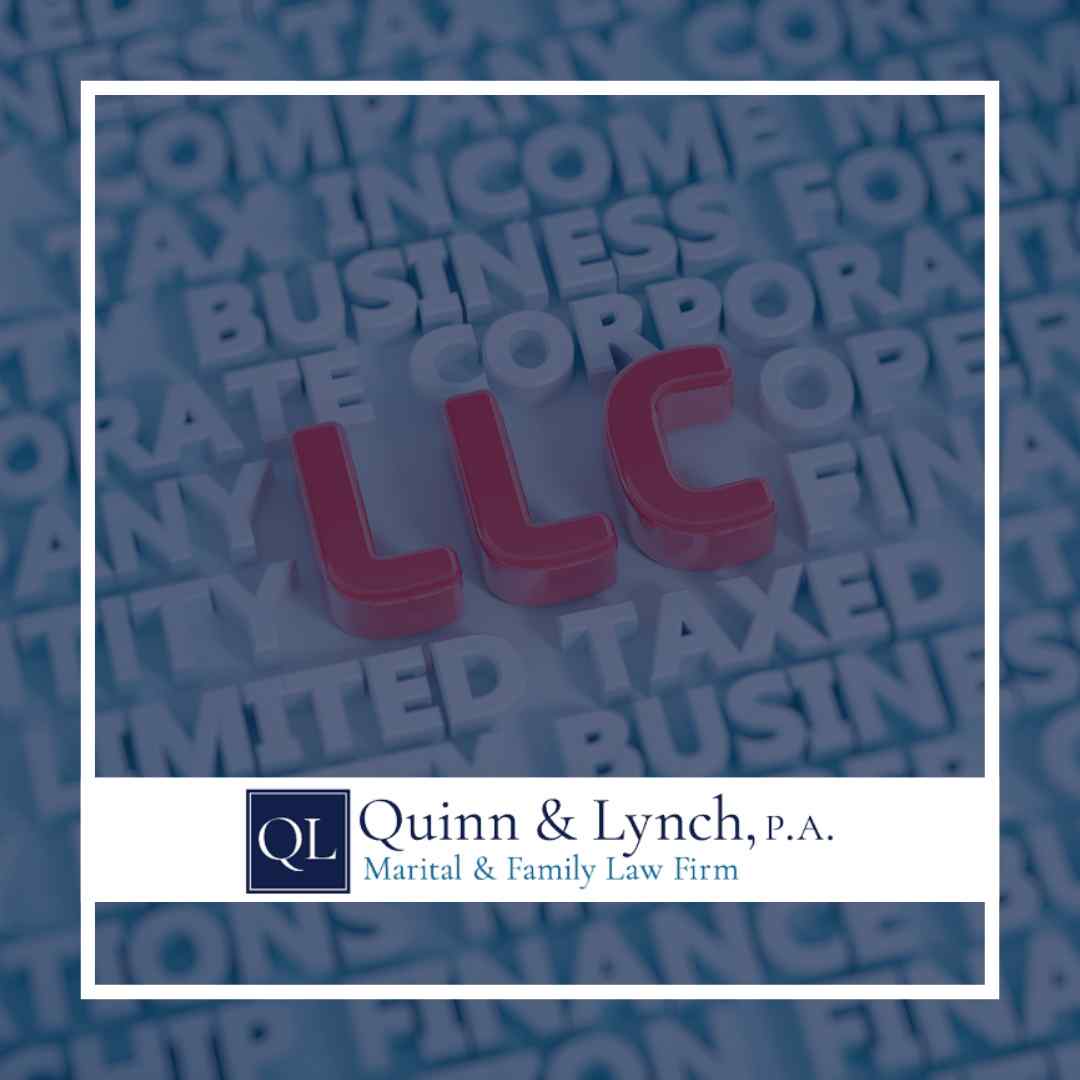Florida business owners are proud of the enterprises they have created. A successful company is built step by step from an entrepreneurial vision linked with sweat equity and sound decision-making. If you are a company principal in the Tampa Bay Area or elsewhere in the state, you want to protect what you have literally created from the ground floor up.
Asset division is a core concern for most divorcing couples. In most cases, Florida law provides for an equitable (read fair) distribution of property between splitting spouses. In some instances, that is relatively simple and straightforward. Assets deemed “marital property” might be quickly identified, easily valued, and divided without much fanfare between divorcing parties. In other divorces, the property division focus is a more complex task. And it can feature disagreement and acrimony far more readily than civility, especially for those who have poured their heart and soul into a small business. So, how is an LLC treated in a divorce in Florida?
High Asset Divorce Property Sharing
The latter scenario is much more often present in cases where significant wealth is involved. A high-asset decoupling commonly features assets that are both multiple and diverse. Property that needs to be accounted for and legally dealt with can range broadly from various investment vehicles and company-sponsored savings to business perks (e.g., deferred compensation, stock options, and profit sharing), realty holdings, and more.
LLC Businesses as Asset Sources
A recent Forbes piece duly points to a family business as one of those “and more” asset sources that must be accounted for in many high-net-worth divorces. A business might have been started by one partner before marriage or established during a union by both spouses. In either case, it will surely command a prominent spotlight during the divorce.
Why Divorce Puts Small Business Owners at Risk
Many business owners understandably spend considerable time and effort focused on strategies to safeguard their companies. They work with legal and financial professionals to protect business assets against rivals and creditors and to steer clear of litigation and other challenges. Sometimes, though, they fail to anticipate that the most immediate and dire threat to their company’s continued existence and growth comes from an unparalleled inside source.
Namely, that is their spouse. In many cases, spouses do nothing but support the enterprises their partners established before marriage, recognizing company assets as their entrepreneurial spouse’s separate property. In other instances, a business can become ground zero in a divorce-linked property division conflict. One in-depth online article on safeguarding a home business during divorce stresses that things can sometimes “be very messy” for a business owner suddenly involved in a push-and-pull contest involving a created company.
“Divorce is unpredictable,” notes that article. It adds, “While no one wants to experience permanent separation, it is good not to incur double losses.” Put another way: Many impending exes duly acknowledging that their marriages are not salvageable still make strong efforts to save their businesses.
How to Protect Your Business During Divorce
Business owners contemplating marriage have hopefully given some timely thought to strategies they might reasonably employ to protect their companies if their unions do not last. Rather than being cynical, a proactive mindset can promote civility and a rational outcome if a marriage fails.
Here are a few things that an owner-spouse might want to focus on:
- Creation of a prenuptial agreement, which can provide mutually desired clarity surrounding how a business will be construed and treated in any asset-division matter
- Strict separation of business assets and other so-called “marital” property
- Curb on spouse’s material involvement in business matters
- Receptivity during the divorce process to surrendering non-company assets to retain control over a business
Of course, things can get a bit complicated in any divorce negotiation involving business-tied property division. The above-bulleted list is but a representative sampling of many additional points that might factor into a judicial decision. If you find as a business owner that you are thinking deeply about your company before marriage, it might make sense to have a candid and confidential conversation with a proven family law legal team.
We dive into prenups more here:
Tampa Property Division Attorney for LLC Owners
We underscore that certain focus at Quinn & Lynch. Our firm’s website stresses, “In divorces involving business ownership, … marital property division should be overseen by an experienced valuation expert.”
Many issues that concern a family business can understandably arise during a divorce. How an LLC is treated in a divorce will rely on a number of specifics.
A proven family law legal team with deep experience in property division matters can candidly advise clients and work diligently to promote his or her best interests. Contact a Tampa property division attorney to learn more.















